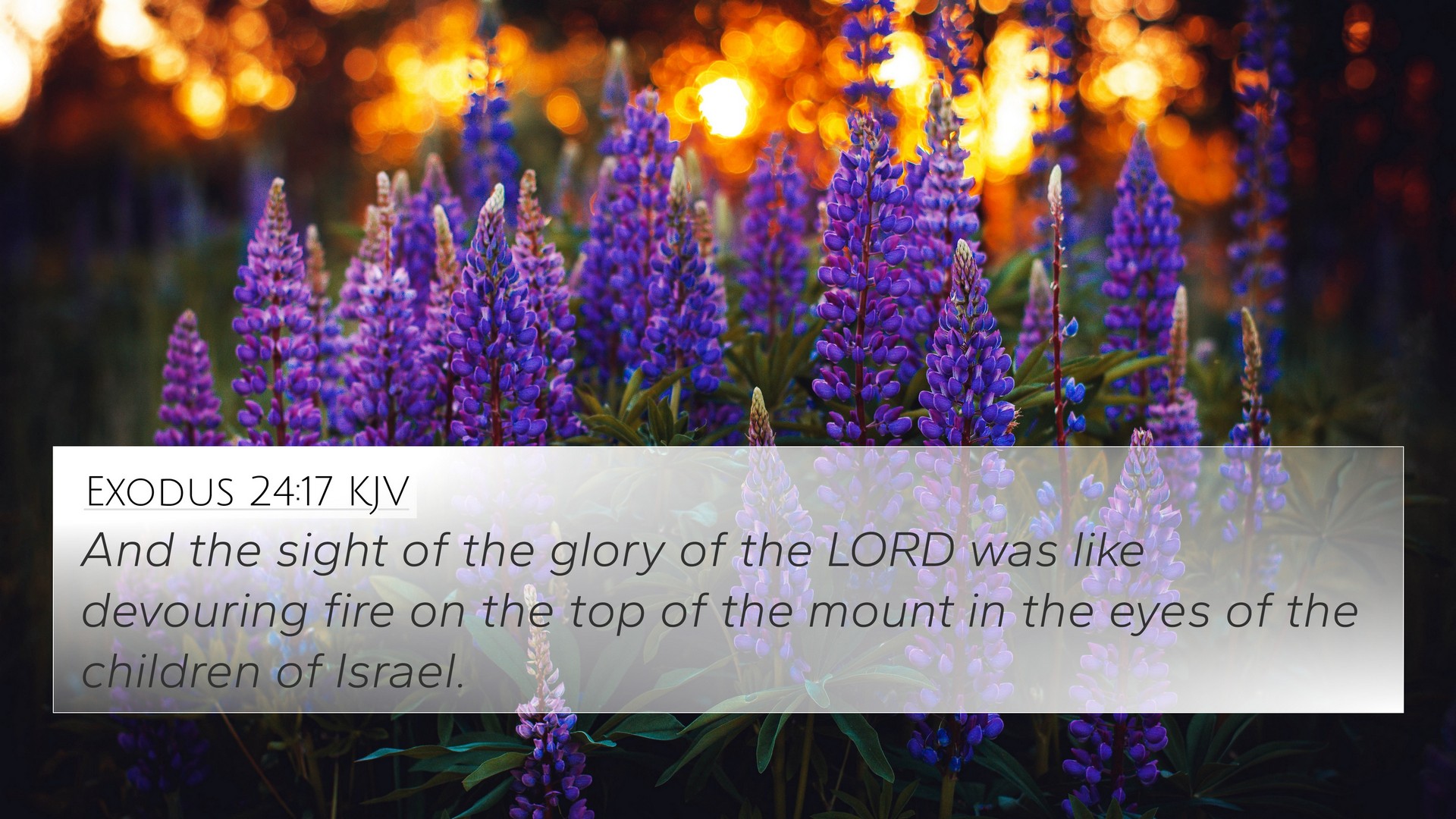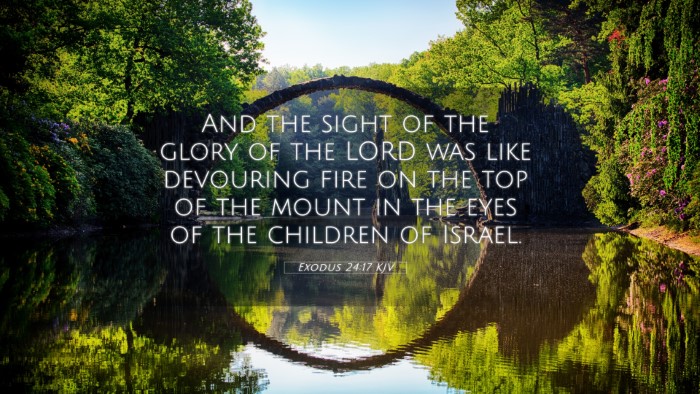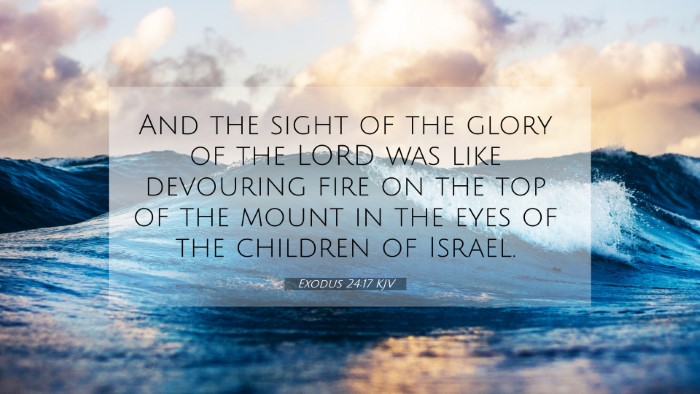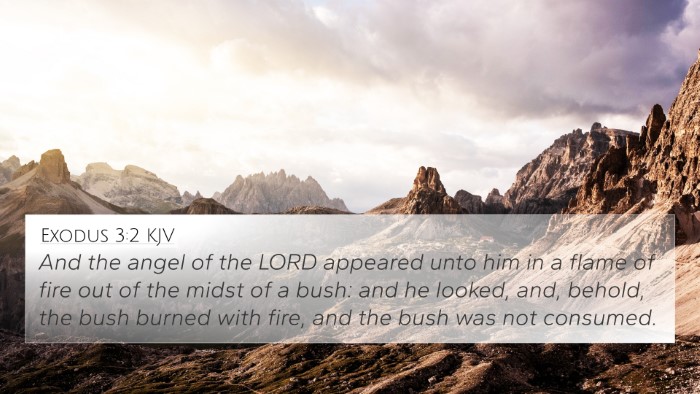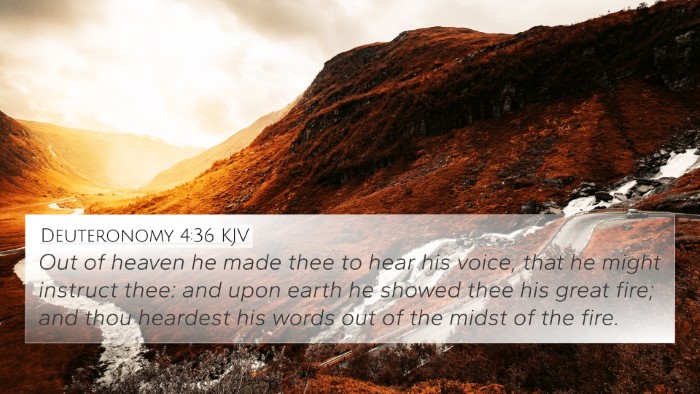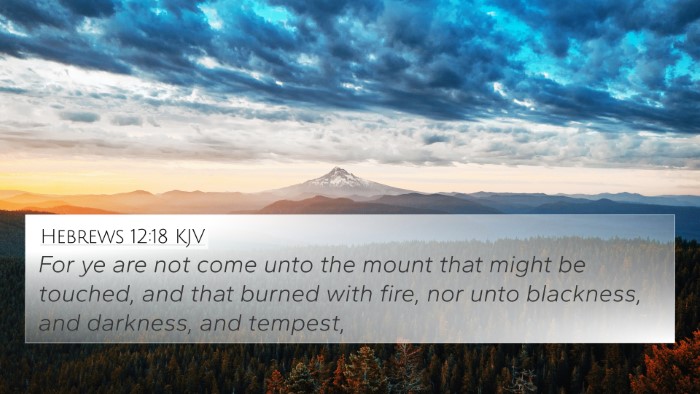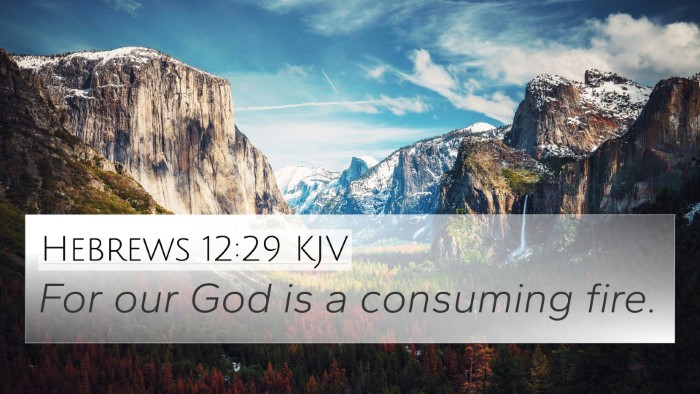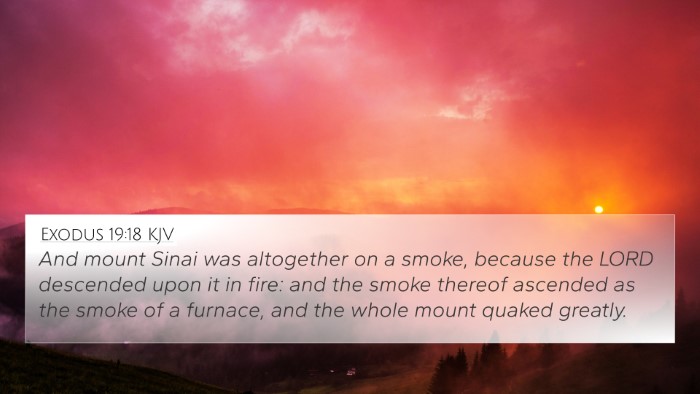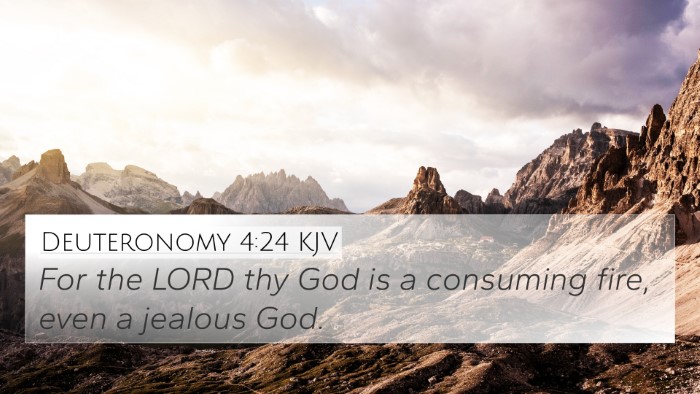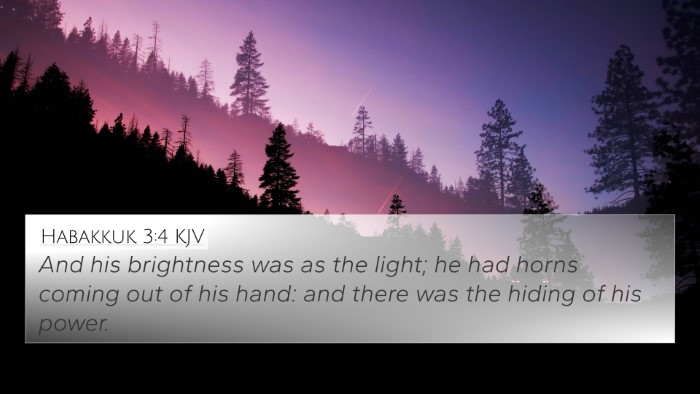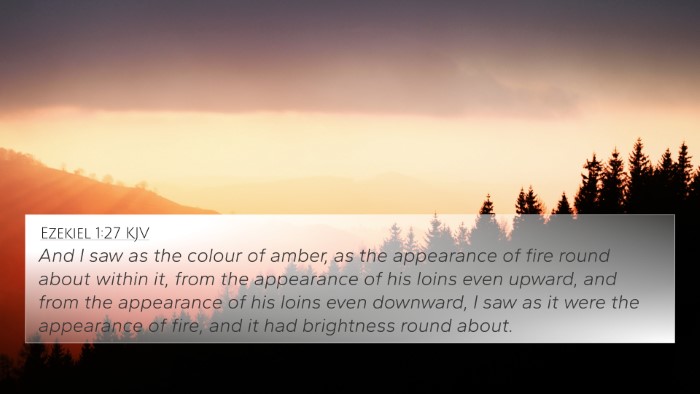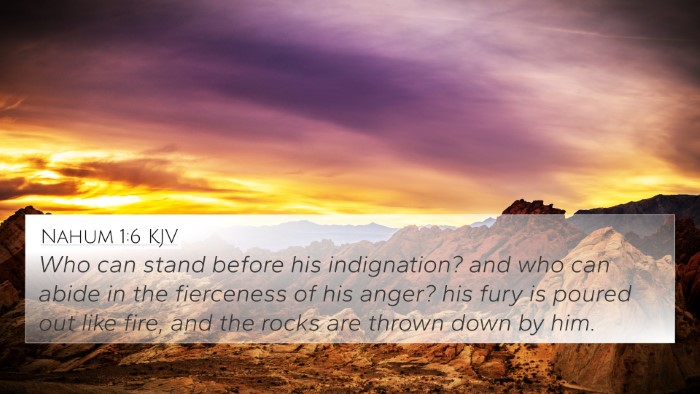Understanding Exodus 24:17
Exodus 24:17 reads: "And the sight of the glory of the LORD was like devouring fire on the top of the mount in the eyes of the children of Israel."
This verse describes a striking moment in the narrative of the Israelites’ journey, emphasizing the holiness and majesty of God. The phrase "sight of the glory of the LORD" indicates a powerful revelation of God's presence, which manifests as a consuming fire. The reference to the mountain signifies the divine encounter and authority of God while highlighting the profound fear and reverence this instilled in the people.
Commentary Insights
Matthew Henry's Commentary
Henry explains that the "glory of the LORD" represents God's unapproachable light, highlighting His purity and divine majesty. The fire symbolizes both judgment and the warmth of His presence. The people's reaction is central—it reflects their recognition of God's might and a natural fear that arises from encountering the divine holiness.
Albert Barnes' Notes
Barnes provides insight into the symbolism of fire in the ancient Near Eastern context, where it often represented divine presence and power. He points out that this vision served as a confirmation of God's covenant with Israel, reinforcing their unique relationship with Him while also instilling a serious understanding of His expectations for obedience and reverence.
Adam Clarke's Commentary
Clarke notes that the "consuming fire" invokes the seriousness of God's holiness. He argues that the experience serves as a warning against irreverence and disobedience, as God's glory is awe-inspiring yet terrifying. The fear in the children of Israel illustrates the distance that sin creates between humanity and the divine.
Key Themes and Connections
The verse can be linked to several other passages in the Bible, providing a broader understanding of God's character and His relationship with humanity.
- Deuteronomy 4:24: "For the LORD your God is a consuming fire, a jealous God." - This reinforces the theme of God's holiness and jealousy for His people.
- Hebrews 12:29: "For our God is a consuming fire." - The New Testament echoes the same attributes of God’s nature, emphasizing His immanence and holiness.
- Exodus 19:18: "Now Mount Sinai was wrapped in smoke because the LORD descended on it in fire..." - This emphasizes God’s overwhelming presence at Sinai, connecting the two events.
- Isaiah 33:14: "The sinners in Zion are afraid; trembling has seized the godless..." - This addresses the fear that God's magnificent presence inspires in the heart of humanity.
- Nahum 1:6: "Who can stand before his indignation?" - This part speaks to the power of God’s holiness to judge and the fear it incites.
- Revelation 1:14: "His eyes were like a flame of fire..." - A New Testament depiction of Jesus that alludes to God's holiness and power.
- Romans 12:1: "Present your bodies as a living sacrifice, holy and acceptable to God..." - Calls for our response to God’s holiness through worship and obedience.
Bible Verse Cross-References
This verse provides rich opportunities for cross-referencing within the broader scriptural narrative:
- 1 Kings 18:24 - Fire as a means for divine approval.
- Psalm 97:3 - God’s judgment through fire.
- Matthew 3:11-12 - John the Baptist’s reference of baptism by fire.
Conclusion
Exodus 24:17 serves as a profound reminder of the reverence due to God’s glory—a theme echoed throughout the Bible. Understanding this verse through the insights of various commentaries allows one to appreciate the narrative depth and the relational dynamics at play between God and man. The connections formed inline with the broader biblical themes further enrich our understanding and encourage deeper study through tools like Bible concordance and Bible cross-reference systems.
As a believer or seeker, reflecting on this verse invites a closer introspection of one’s walk with God, fostering a message of holiness, reverence, and relationship.
Additional Resources for Study
For those looking to dive deeper into Bible verse cross-referencing, consider exploring various Bible reference resources and the implications of inter-Biblical dialogue to enhance your understanding of scripture.
